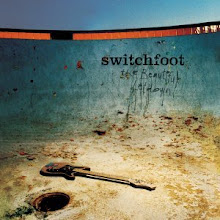Yong Vui Kong's appeal is going before the Court of Appeal this March. It seems that Singapore cyberspace is pretty much silent on the issue except for The Online Citizen who have continued their coverage on the death penalty debate with some very thought-provoking articles. In my must-read list would be TOC's interview with Prof Michael Hor of NUS Law School and Law Society's President Michael Hwang's address in 2008.
These two legal heavyweights have brought up many interesting points in the death penalty debate, and specifically the debate on the mandatory death penalty in Singapore. I have said earlier that I would support a movement that removes the mandatory death penalty and I hope with this case and the coverage by TOC, the government would entertain the thought of a public debate on the issue.
Michael Hwang puts it most eloquently in his address to Law Society in 2008, "The extent to which an offender ought to be punished cannot be determined solely by the need to stamp out future repetitions of the same offence; there is a moral limit to the law’s power to make an offender an example for others to fear." It resonates as I read it because I can imagine someone receiving a heavier sentence as a deterrence but I cannot fathom a person dying to act as a deterrence; not to mention the many petty drug traffickers.
Michael Hor, on the other hand, points out succinctly the problematic mandatory death penalty:
Perhaps the most prominent aspect of a mandatory death penalty is the absence of a judicial discretion in relation to the most extraordinary sentence in our criminal law. The judge trying the case can only determine guilt or innocence, and once that is done, the death penalty automatically follows. This goes against the grain of modern penological thinking that the punishment ought to fit not only the crime, but the criminal. It means that the judge should have the power and the duty to take into account the personal circumstances of the offender.
But Michael Hor was also quick to point out that in Singapore's case, the prosecution and police does mitigate the eventual punishment meted out to offenders in terms of going for a reduced charge. But like Hor, I agree that there is no harm in also allowing the judge to be part of this mitigation process and in fact, it might provide greater transparency and oversight to the criminal law process in Singapore.
In tandem with the mandatory death penalty and the absence of discretion on the part of judges' sentencing, the legal process under the Misuse of Drugs Act contains presumptions which shifts the burden of proof to the accused. Hence, he is not granted the principle of innocence until proven guilty. He has to prove that he either did not know he was carrying drugs - failure to do so will, in the current system, most probably result in sentencing him to the gallows.
An eye for an eye, but Jesus shed his blood on the Cross at Calvary just so we can have a chance to repent.
Subscribe to:
Post Comments (Atom)




Thanks for writing this! We've published it as an article - http://theonlinecitizen.com/2010/03/anti-death-penalty-in-spore/
ReplyDeleteDear blogger of Covered in His Blood,
ReplyDeleteLet me first apologise for leaving my request on your comments page, as I couldn't reach you through any other way. I am a PhD candidate from the Communications and New Media programme at the National University of Singapore, and my research examines blogging and collective action. "Covered in his Blood" came up in my sampling process and I am writing to you to seek your valued participation in a survey.
WHAT is this study about?
Without saying too much to bias your responses, my study concerns bloggers' online usage, their social networks and their participation/non-participation in activism. Whether you have participated or have not participated in any activism activity, your responses will be vital in helping me gather empirical evidence on blogging and its effects.
WHY should you help?
There has been much talk in the media and in the parliament on the rise of blogging and online discourse. But do blogging really impact civic participation? How does it do so? Your responses to the simple survey will go a long way in contributing to the nascent field of research on blogging in Singapore.
HOW can you help?
The survey involves easy-to-answer questions (e.g. Yes/No, ratings of “1” to “5”) and will take only about 20 minutes of your time. Based on your preference, I can conduct the survey via email (or any other ways you prefer). Just send me an email and I will forward you the survey form.
Please help!
Bearing in mind the potential difficulties in getting an adequate sample for such a study, I would like to stress that every single participation counts. In addition, this study has been approved by the NUS Ethical Review Committee. You have my complete assurance that all your responses will be kept strictly confidential and your identity anonymous.
Do visit http://www.fas.nus.edu.sg/cnm/research%20students/2006_grad_carol.htm for a brief write-up of my profile (please cut and paste if the link doesn't work). Being a student with no funding support, I am bearing all research costs and appealing to your goodwill (and hopefully curiosity?) to take part in this study.
I look forward to hearing positively from you soon. Thank you for reading this and giving my request your due consideration.
Best regards,
Carol Soon
(Emails: wtsoon@nus.edu.sg and carol_soon@yahoo.com.sg)